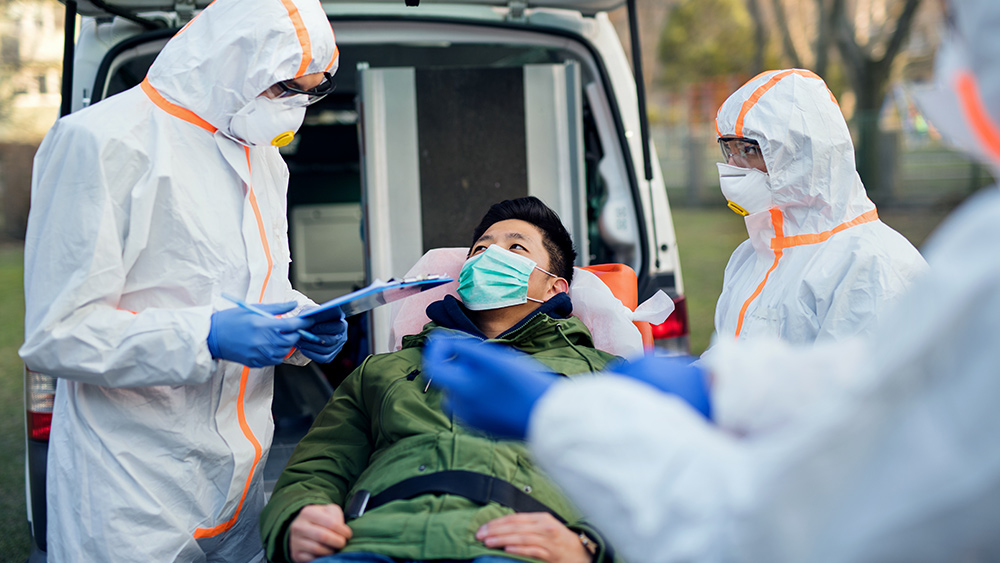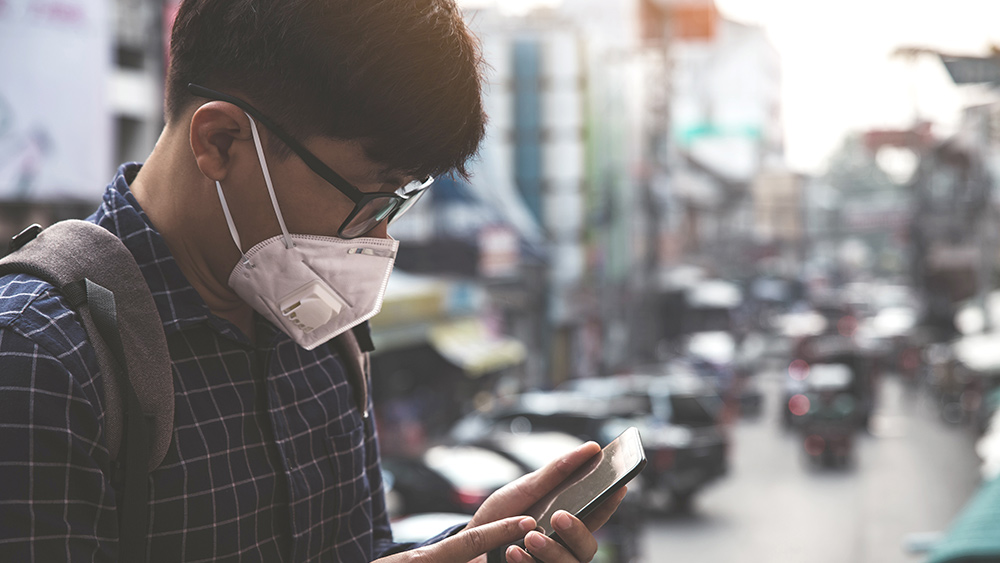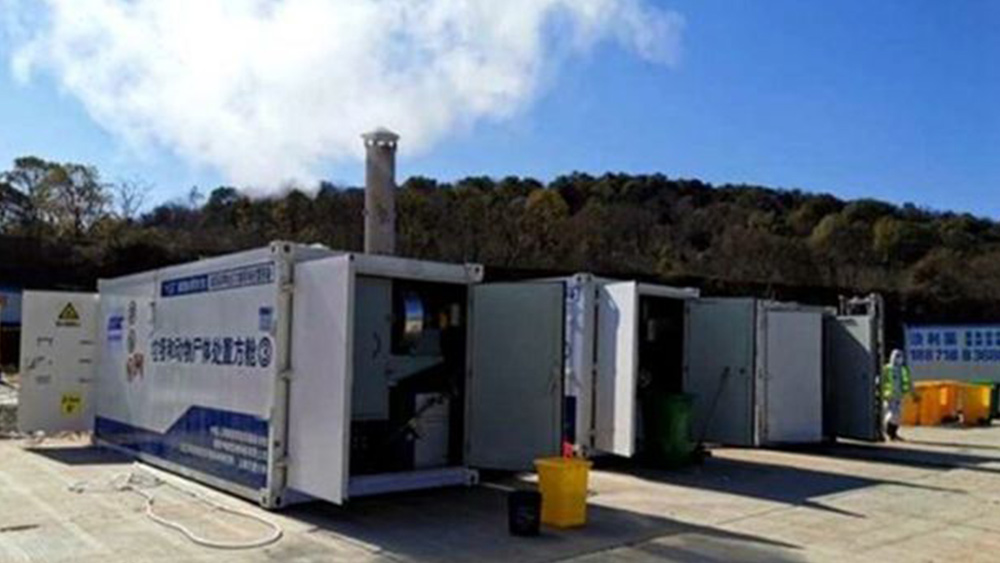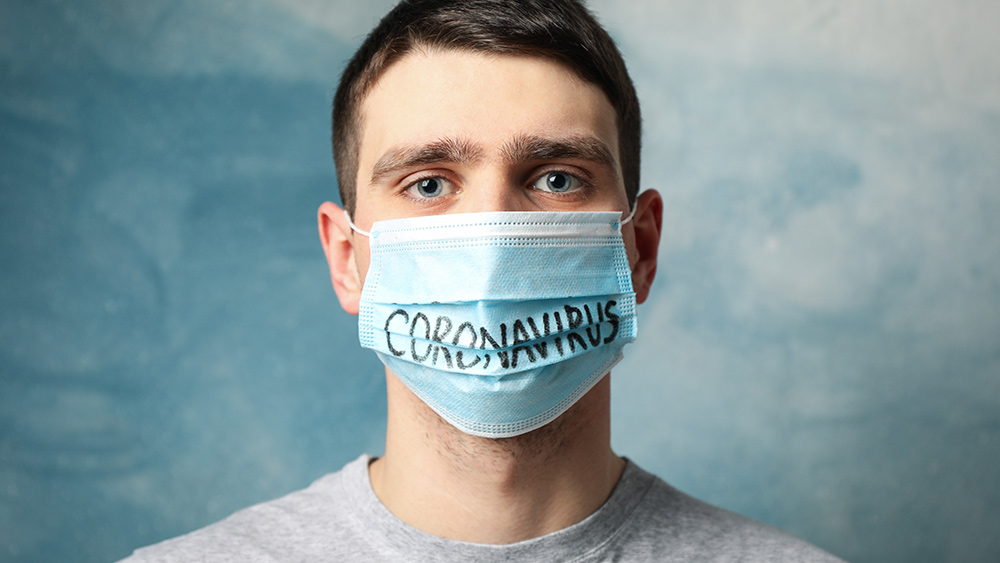Saudi Arabia clears out Islam’s holiest site due to coronavirus fears
03/07/2020 / By Arsenio Toledo

Saudi Arabia ordered the Great Mosque of Mecca to be emptied amid fears over the coronavirus in a report on Thursday. The move was made so that authorities can begin sterilizing the area to minimize the risk of an outbreak.
Images and videos shared by state media, as well as in social media, showed tan-uniformed guards emptying the Mataaf, or the while tiled parade grounds surrounding the Kaaba, the great black cube at the mosque’s center and considered to be the most sacred site in all of Islam. The Mataaf is often packed with devotees as well as pilgrims from around the world.
Authorities are also closing down Safa and Marwa, two small hills located inside the Great Mosque, which pilgrims walk barefoot back and forth in an enclosed gallery.
A Saudi official told AFP that the move was merely a “temporary preventive measure” and that the upper floors of the Grand Mosque were still open, and worshipers already in the kingdom could still come there to pray. However, the official also said that the measure was unprecedented.
Aside from the Great Mosque, authorities will also be closing the Prophet’s Mosque in Medina an hour after evening prayers (Isha) and will reopen it an hour before dawn prayers (Fajr).
NOW: Mataaf of Masjid Al Haram has been closed temporarily for thorough sterilization pic.twitter.com/23o98Ve3W3
— Haramain Sharifain (@hsharifain) March 5, 2020
Saudi Arabia tightening grip to combat coronavirus
On Wednesday, Saudi Arabia announced a temporary ban on Umrah pilgrimages to the holy cities of Mecca and Medina. The new measures came on the heels of visa suspensions for the Umrah last week. The country also barred entry for citizens from five other countries in the Gulf — Bahrain, Kuwait, Oman, Qatar and the United Arab Emirates.
This decision to suspend the Umrah and sterilize the Mataaf comes ahead of the beginning of Ramadan, the holy month of fasting, which starts in late April. Around seven million visitors come to Mecca annually to perform Umrah. Furthermore, the Great Mosque sees an uptick of pilgrims during Ramadan. The Hajj will begin several months after, during late July. It’s still unclear how the coronavirus outbreak will affect both Ramadan and the Hajj. Last year, around 2.5 million Muslims from around the world traveled to Mecca to participate in the Hajj.
The six-day event is a logistical ordeal for local and national authorities. Crowds of millions converge into holy sites, making pilgrims who participate in the Hajj more at risk of catching an infectious disease.
Saudi Arabia reported its first case of COVID-19 on Monday, a Saudi national who recently traveled to Iran. In response to the possibility of more cases popping up in the kingdom, a health ministry spokesperson said that the government was preparing 25 hospitals to take in any new coronavirus cases.
Saudi authorities have cleared the tawaf area in the Kabah in Mecca to give it a "deep clean" – never seen it so empty. pic.twitter.com/swXXGmkq3O
— Areeb Ullah (@are_eb) March 5, 2020
Coronavirus fears changing how Muslims around the world worship
Authorities outside of Saudi Arabia are also strictly regulating how Muslims will continue following their religious traditions.
In Iran, over 3,500 people have reportedly been infected, over 107 people have died, and a full eight percent of the country’s parliament has the disease. The country is struggling to contain the virus. One measure they’ve enacted is to halt Friday prayers in mosques and other public gathering spaces. President Hassan Rouhani is calling on the whole country to “work together” to tackle the outbreak as quickly as possible. (Related: Iran’s VP infected by the coronavirus – many top officials are also sick… or DEAD.)
Tajikistan, a small country in Central Asia with nine million people, still has no reported cases and wants to keep it that way. This is why they’ve also suspended Friday prayers. Furthermore, they’ve completely closed off their borders to people from 35 different countries. Authorities are also canceling celebrations for the Persian New Year (Nowruz), which is celebrated from March 21 to 25.
In Singapore, Minister for Muslim Affairs Masagos Zulkifli told citizens to avoid shaking hands with anyone and to bring their prayer mats when they go to mosques to pray. He is also advising Muslims to stay at home if they show any COVID-19 symptoms.
“In these circumstances, we will not be shaking hands,” he said. “But if you do, wash your hands and then make sure you don’t touch your face. This is just a precaution for many of us who always forget that.”
The Muslim Council of Britain, one of the United Kingdom’s largest umbrella organizations for Muslims, has called on both mosques and madrasas (Islamic schools) to follow the government’s advice to keep their congregations safe from the outbreak. They are advising mosques and madrasas to encourage handwashing and to stock up on enough soap and hand sanitizers.
In Saudi Arabia, more than 60,000 people have so far applied to participate in this year’s Hajj. It remains to be seen how the coronavirus outbreak will affect this year’s celebrations. Authorities have not yet announced if the restrictive measures currently imposed on both the Great Mosque and the Prophet’s Mosque will apply during the Hajj or if they will expand these measures.
Sources include:
Tagged Under: coronavirus, coronavirus outbreak, covid-19, Hajj, Islam, Mecca, Medina, Muslims, outbreak, pandemic, priority, religion, Saudi Arabia, Saudi Arabia coronavirus outbreak, Saudi Arabia COVID-19 outbreak



















